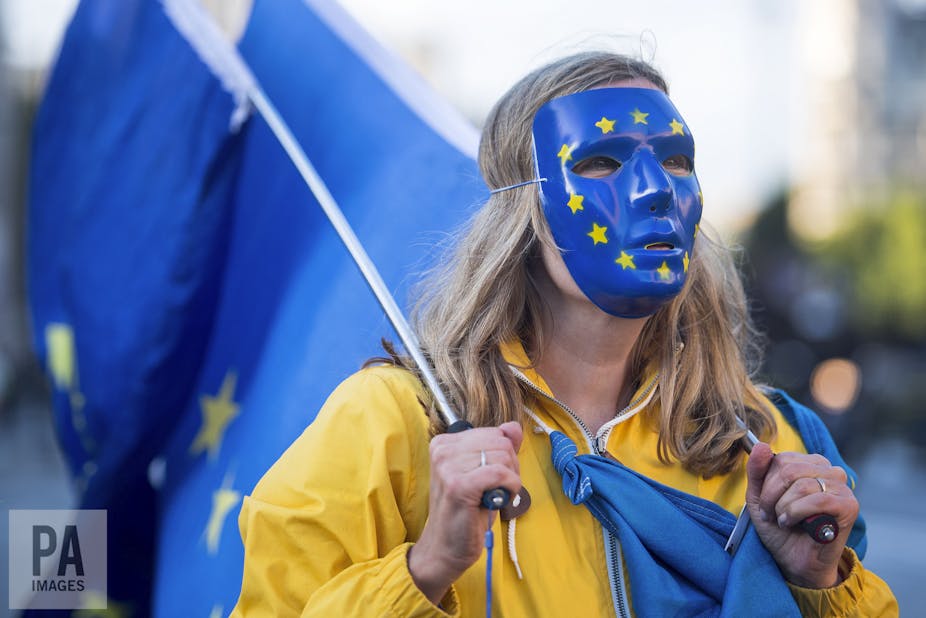The European Union has always been an issue that prompted unusual alliances (usually in opposition to it). The vote on the second reading of the European Union (Withdrawal) Bill in the House of Commons was no exception – albeit on a rather small scale.
Following two days of debate, the house voted on whether to allow this bill to pass, giving the government the green light to transcribe EU law onto the UK statute books, and so enabling Brexit to happen.
On a night that saw the far right (Kate Hoey, does not like immigration) and the far left (Dennis Skinner, does not like capitalism) of the Labour Party unite in support of Brexit, the government moved its bill on to the next stage without too much trouble.
There had been some rumblings from the Conservative backbenches about voting against the bill. But in reality, there was never much chance that Brexit sceptics would defeat the government on such a crucial issue at this stage. And in the end, the government won with 326 votes to 290.
However, while Prime Minister Theresa May did not suffer a rebellion on the central second reading vote, and only very minor sulking from Kenneth Clarke on the arrangements for the next stage on proceedings, there is clearly trouble to come.
Some on the Conservative backbenches are deeply unhappy about parts of the bill. They are concerned that that government is seeking to hand itself excessive decision making powers as laws are sifted through after Brexit. These fears have led to a rush of amendments to the bill, which will make the next stage of its parliamentary journey somewhat trickier.
Several Conservative backbenchers have tabled amendments in an attempt to push the government into giving greater guarantees that parliament will continue to play a central role as the details of Brexit are thrashed out over the coming years. These will have to be carefully navigated by the government if it is to avoid being defeated on the details of the bill.
Labour holds it together
Despite a predictably negative interpretation from the Express (“Corbyn desperately attempts to claw back control”), Labour was able to walk away from the vote with only minor – and thoroughly expected – dents in its unity.
While seven MPs did defy the leader’s three-line whip, calling on them to vote against the bill, this was still far fewer than had been rumoured. At some points it was feared that up to 20 would rebel, voting with the government. Any rebellion from the Labour backbenches clearly contrasts negatively with the complete (if brittle) voting unity on the government benches. However, considering the highly contentious nature of Brexit and the support for leave in many Labour held constituencies, a rebellion of seven MPs can probably be seen as a fairly good night for Corbyn.

The bill will now move on to a much more detailed level of scrutiny at the committee stage. Both Corbyn and May face significant challenges in holding their parties together.
On balance, May will probably have a harder time at it than Corbyn. Labour is split on the general idea of Brexit, but the party is likely to be fairly united on giving parliament a greater say in how the process is managed. May on the other hand is faced with Brexit enthusiasts and sceptics in her party uniting in opposition to key elements of the bill. In short, Brexit will continue to lead to unusual alliances and growing headaches for both main parties and their leaders.

